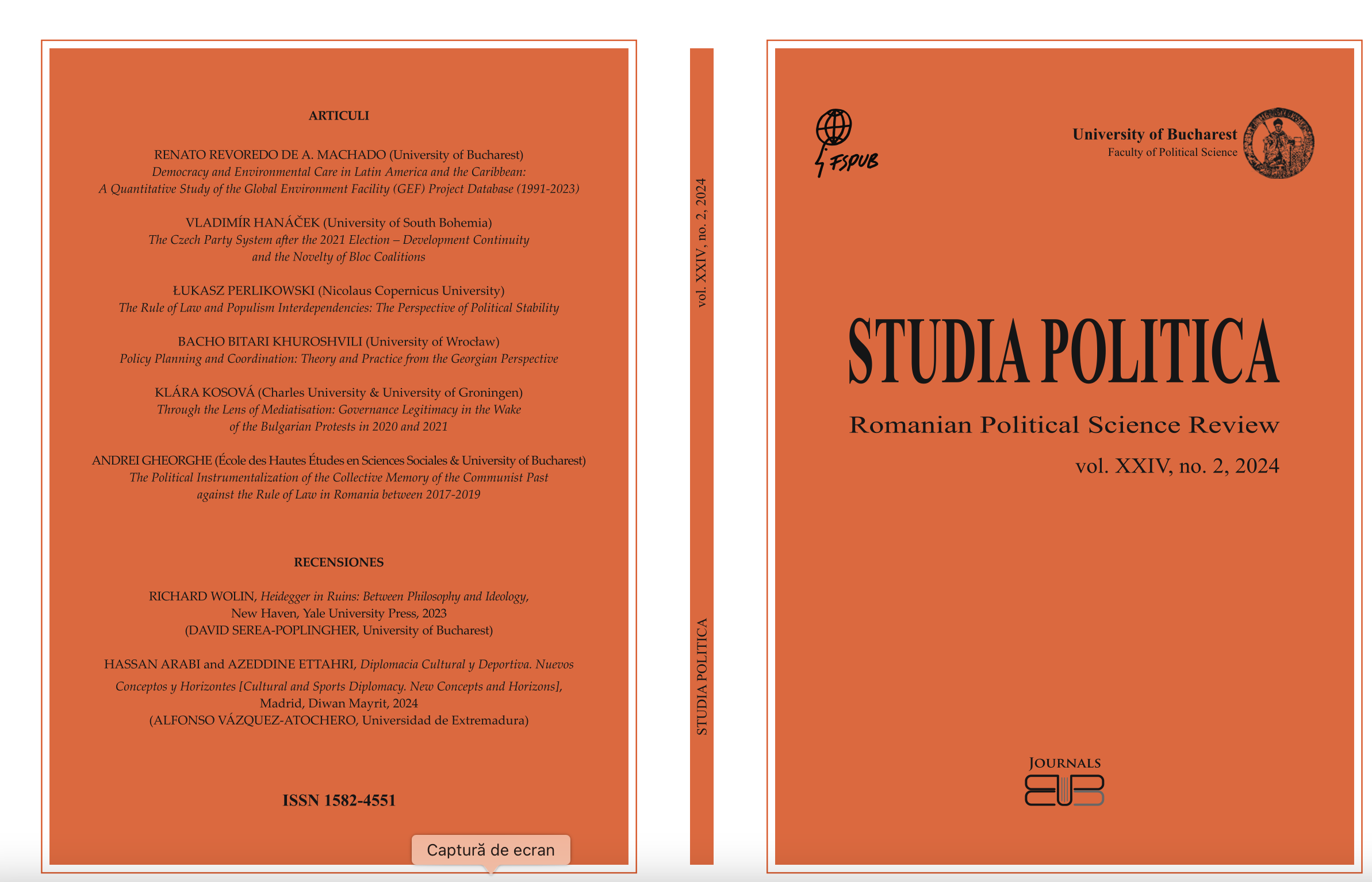DEMOCRACY AND ENVIRONMENTAL CARE IN LATIN AMERICA AND THE CARIBBEAN: A QUANTITATIVE STUDY OF THE GLOBAL ENVIRONMENT FACILITY (GEF) PROJECT DATABASE (1991-2023)
DEMOCRACY AND ENVIRONMENTAL CARE IN LATIN AMERICA AND THE CARIBBEAN: A QUANTITATIVE STUDY OF THE GLOBAL ENVIRONMENT FACILITY (GEF) PROJECT DATABASE (1991-2023)
Author(s): RENATO REVOREDO DE A. MACHADOSubject(s): Politics / Political Sciences, Politics, Governance, Environmental and Energy policy, Geopolitics
Published by: Editura Universităţii din Bucureşti
Keywords: Latin America; Global Environment Facility; environmental projects; political freedom; comparative environmental care;
Summary/Abstract: This paper explores the relationship between democracy and environmentalcare in the Latin America and Caribbean (LAC) region, by presenting the variable-multilateral resources mobilized for environmental projects, mostly on a per capita basis.By analyzing data from the Global Environment Facility (GEF) database, which coversinvestment cycles from the early 1990s through June 2023, the correlation betweenamounts mobilized for environmental projects and political freedom scores acrosstwenty-four countries in LAC is explored, under two dimensions: project generation,and project completion. The findings suggest that high-quality democracies havemobilized more GEF resources. However, the relationship is less clear for lower quality democracies. Smaller democracies display the best results, although the Caribbean casesexcel at generating projects but show poor results in completing them. The largest LACcountries show disappointing results, which can be partly attributed to their politicallandscape complexity. Additionally, regression analyses were conducted to test some ofthe independent variables that influence the results, and the findings suggest that lowerlevels of corruption and higher number of environmental laws passed are statisticallysignificant, explaining the superior GEF per capita mobilization results. Hence, the trioof a higher quality democracy, higher number of environmental laws enacted, and lowerlevels of corruption seem to be especially beneficial for environmental action.
Journal: Studia Politica. Romanian Political Science Review
- Issue Year: 24/2024
- Issue No: 2
- Page Range: 249-286
- Page Count: 38
- Language: English

